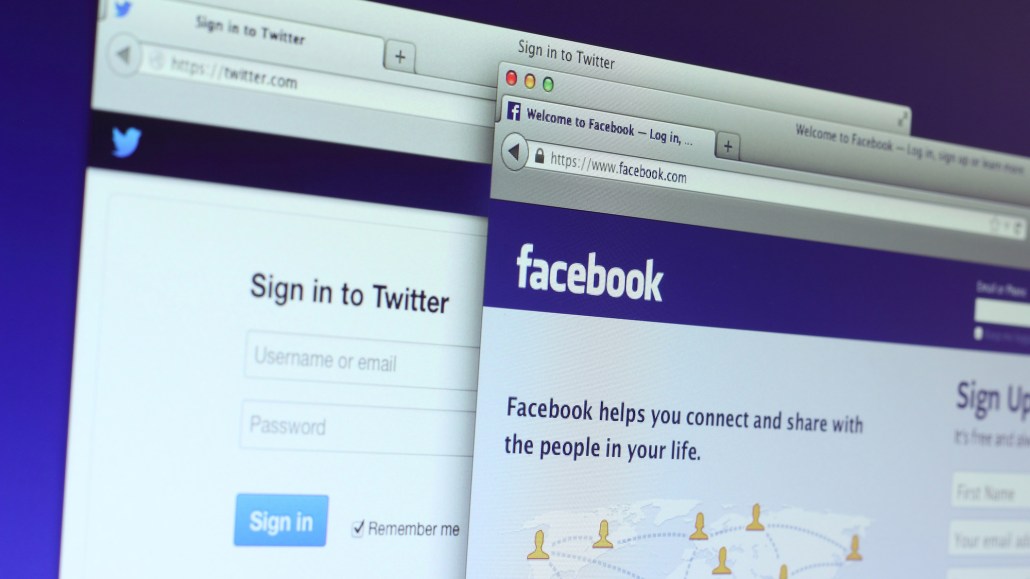
One would think that Facebook — with its booming mobile ads business and a nearly $200 billion market cap — would be the envy of the platform world. But Facebook sometimes seems as if it longs to be more like Twitter.
Facebook announced today that its changing its news feed algorithm (again) to surface more timely posts and facilitate more conversations in real-time, an obvious attempt to steal away Twitter’s real-time thunder.
The change is meant to bring attention to more timely posts and conversations, such as Facebook connections “are both watching the same sports game, or talking about the season premiere of a popular TV show,” Facebook engineers Erich Owens and David Vickrey wrote in a blog post on the news feed change.
Twitter’s ability to facilitate conversations about real-time events — especially sporting events and TV shows — is arguably its strongest, most defining feature. Indeed, Twitter’s partnerships with the National Football League and media buyers, for example, revolve around using real-time conversations to drive viewership to shows and helping brands derive more value from their TV ads.
Facebook may be positioning this change as a way to better serve users, but where go the users, so do the advertisers. Facebook declined a request for comment.
News feed will now prominently feature posts related to trending topics (another feature Facebook “borrowed” from Twitter). Highlighting posts related to a trending topic yielded a 6 percent increase in engagement, Facebook said in the blog.
This could have profound implications for publishers that receive large amounts of referral traffic from Facebook. USA Today sports blog FTW has had success optimizing stories for Facebook’s trending topics, for instance, and this change will likely amplify the traffic it sees from those efforts.
News feed will also be more of a real-time feedback loop now: The more rapidly a post receives likes, comments and shares, the higher up it will appear in news feed, thus increasing the likelihood of more interactions.
This could, again, change how publishers cater to and receive traffic from news feed. Publishers like New York Magazine have found success posting old stories to their Facebook pages, given the story relates to so a current news event. This wouldn’t render that tactic useless per se, but such posts would need to generate engagement more quickly to receive wide distribution.
This is hardly the first time Facebook has co-opted one of Twitter’s signature features. Indeed, Facebook has integrated nearly of Twitter’s defining elements, including hashtags; check-mark-verified accounts for celebrities and journalists, the aforementioned trending topics and a loving embrace of the media world via a host of news feed changes that have placed higher value on publishers’ posts.
Twitter, meanwhile, is looking to introduce an algorithmically determined feed in 2015, causing many Twitter diehards to bemoan that it will become too much like Facebook.
This is the mixed up, muddled up, shook up platform world we live in; Facebook wants to be more like Twitter, and Twitter wants to be more like Facebook.
More in Media

In Graphic Detail: The scale of the challenge facing publishers, politicians eager to damage Google’s adland dominance
Last year was a blowout ad revenue year for Google, despite challenges from several quarters.

Why Walmart is basically a tech company now
The retail giant joined the Nasdaq exchange, also home to technology companies like Amazon, in December.

The Athletic invests in live blogs, video to insulate sports coverage from AI scraping
As the Super Bowl and Winter Olympics collide, The Athletic is leaning into live blogs and video to keeps fans locked in, and AI bots at bay.





